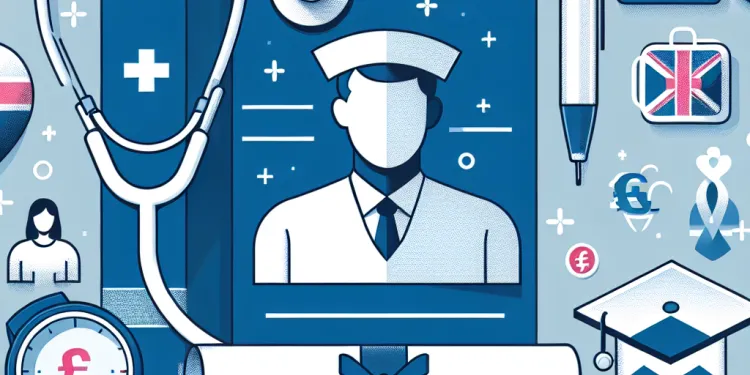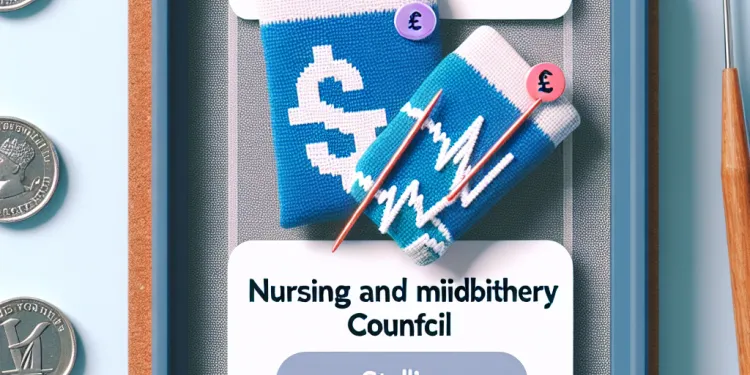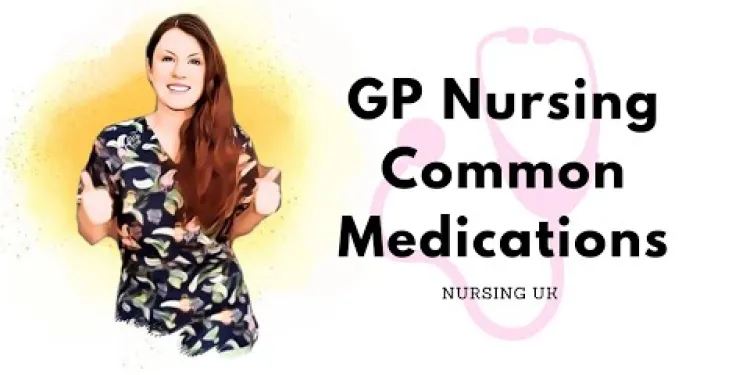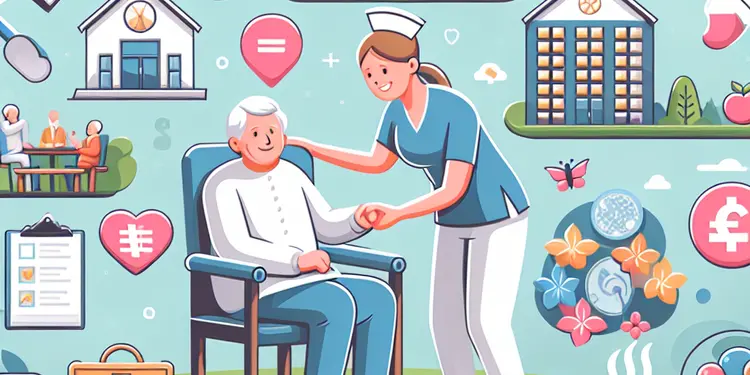
Find Help
More Items From Ergsy search
-

Can I become a nurse in the NHS with a nursing diploma?
Relevance: 100%
-

Can I become an NHS nurse if I have international nursing qualifications?
Relevance: 95%
-

Do I need to be registered with the Nursing and Midwifery Council (NMC) to work as an NHS nurse?
Relevance: 92%
-

Is it possible to study nursing part-time?
Relevance: 90%
-

The role of residential and nursing homes
Relevance: 90%
-

The role of residential & nursing homes
Relevance: 89%
-

How can I become an NHS Nurse in the UK?
Relevance: 89%
-

What skills are important for a career in nursing?
Relevance: 88%
-

What types of nursing degrees can I pursue?
Relevance: 86%
-

What are the career progression opportunities for NHS nurses?
Relevance: 85%
-

Are there any apprenticeship routes to becoming an NHS nurse?
Relevance: 85%
-

What GCSEs or A-Levels do I need to become a nurse?
Relevance: 85%
-

Is there a minimum age requirement to start nurse training?
Relevance: 84%
-

What is the process for applying to a nursing degree course?
Relevance: 84%
-

What funding options are available for nursing students in the UK?
Relevance: 84%
-

How do I choose a good nursing home?
Relevance: 83%
-

What are the basic educational requirements to become an NHS nurse?
Relevance: 83%
-

How long does it take to become an NHS nurse?
Relevance: 82%
-

How are care homes different from nursing homes?
Relevance: 82%
-

How important is work experience for entering a nursing program?
Relevance: 81%
-

What support systems are available to NHS nurses for continuing professional development?
Relevance: 78%
-

Is live-in care an alternative to nursing homes?
Relevance: 77%
-

Will I still have access to doctors and nurses on a virtual ward?
Relevance: 73%
-

GP Nursing Most Common Medications UK.
Relevance: 67%
-

Can I specialize in a certain area of nursing with the NHS?
Relevance: 61%
-

How physically demanding is a career in NHS nursing?
Relevance: 60%
-

South London Arrhythmia Nurses Forum (16 June 2022)
Relevance: 54%
-

Can I attend open days to learn more about nursing programs in the UK?
Relevance: 52%
-

Are there different types of care homes?
Relevance: 39%
-

How do I choose a good bursing home
Relevance: 39%
-

Do care homes provide medical care?
Relevance: 38%
-

What is the role of a healthcare assistant on the path to becoming a nurse?
Relevance: 37%
-

Who can administer Botox?
Relevance: 37%
-

What qualifications do care home staff have?
Relevance: 34%
-

What are Care Homes?
Relevance: 32%
-

Does live-in care include medical services?
Relevance: 31%
-

How can seniors access long-term care support?
Relevance: 30%
-

What support is available for people with stoma bags?
Relevance: 27%
-

What services do care homes provide?
Relevance: 26%
-

How the Shortage of GPs is Affecting Patient Care Across the UK
Relevance: 25%
Introduction to Becoming an NHS Nurse
Becoming a nurse within the National Health Service (NHS) in the UK is a rewarding career choice that offers the opportunity to make a difference in people's lives. This guide will outline the steps to become an NHS nurse, including educational requirements, registration, and career prospects.
Educational Requirements
To become an NHS nurse, you need to complete a nursing degree program. There are four main branches of nursing you can specialize in: adult nursing, children's nursing, mental health nursing, and learning disabilities nursing. Degree courses are offered by universities across the UK and typically last three years full-time. Entry requirements vary, but generally include A-levels or equivalent qualifications, with a preference for science subjects.
If you do not have traditional qualifications, an Access to Higher Education Diploma may be accepted. Additionally, some universities offer combined master's degrees or dual registration courses, which may add an extra year to your studies.
Nursing and Midwifery Council (NMC) Registration
Upon completion of your nursing degree, you must register with the Nursing and Midwifery Council (NMC) to practice as a registered nurse in the UK. This requires submitting an application, along with proof of your qualifications and, if applicable, your English language proficiency. You will also need to pass a health and character assessment and pay the registration fee.
Caring for Patients in the NHS
Once registered, you can apply for nursing roles within the NHS. Nurses are in high demand, and there are opportunities to work in various settings, such as hospitals, GP practices, community health services, and more. The NHS values continuing professional development, offering various training opportunities for career advancement and specialization.
Continuing Professional Development
Continual learning is essential in nursing to keep skills and knowledge up-to-date. The NHS supports nurses in pursuing further education, such as postgraduate courses, and offers pathways to specialize or move into advanced practice roles, such as nurse practitioner or nurse consultant. Professional development also involves staying informed about the latest practices and guidelines in healthcare.
Conclusion
Becoming an NHS nurse involves several steps, including completing a nursing degree, registering with the NMC, and engaging in ongoing professional development. It is a career that requires dedication but provides the opportunity to improve patient outcomes and contribute positively to society. Those interested should explore educational opportunities and consider the specific branch of nursing that aligns with their interests and career goals.
Introduction to Becoming an NHS Nurse
Being a nurse in the NHS in the UK is a great job. You get to help people feel better. This guide shows you how to become a nurse, like what school you need to go to and how to get registered as a nurse.
Educational Requirements
To be an NHS nurse, you need to go to university and study nursing. There are 4 kinds of nursing you can choose from: caring for adults, children, people with mental health issues, or those with learning disabilities. Nursing courses usually take 3 years. To get in, you generally need A-levels or something similar, especially in science subjects.
If you don’t have the usual qualifications, you can take an Access to Higher Education Diploma. Some universities offer longer courses that also include a master's degree.
Nursing and Midwifery Council (NMC) Registration
After you finish your nursing degree, you must sign up with the Nursing and Midwifery Council (NMC) to work as a nurse in the UK. You will need to show your qualifications, and maybe prove your English skills. You also need to pass a health check and pay a fee.
Caring for Patients in the NHS
Once you are registered, you can apply for nursing jobs in the NHS. There are many places to work, like hospitals and clinics. The NHS supports your learning with training programs to help you grow and advance in your career.
Continuing Professional Development
As a nurse, you need to keep learning new things. The NHS helps nurses to learn more by offering further courses and training. You can choose to specialize in certain areas or take on roles with more responsibility.
Conclusion
To become an NHS nurse, you need to complete your nursing education, register with the NMC, and keep learning throughout your career. It takes hard work, but you will make a difference in people's lives. Think about what kind of nursing you want to do and start looking at university courses.
Frequently Asked Questions
What are the basic educational requirements to become an NHS nurse?
To become an NHS nurse, you typically need a degree in nursing, which is recognized by the Nursing and Midwifery Council (NMC).
Do I need to be registered with the Nursing and Midwifery Council (NMC) to work as an NHS nurse?
Yes, you must be registered with the NMC to practice as a nurse in the UK.
Can I become a nurse in the NHS with a nursing diploma?
While a diploma used to be sufficient, most NHS employers now require a nursing degree for new nurses. A diploma may still be valid for older practicing nurses.
How long does it take to become an NHS nurse?
It typically takes three years to complete a full-time undergraduate nursing degree.
What types of nursing degrees can I pursue?
You can pursue degrees in adult nursing, children's nursing, mental health nursing, or learning disabilities nursing.
Are there any apprenticeship routes to becoming an NHS nurse?
Yes, the Registered Nurse Degree Apprenticeship is an option that allows you to earn while you learn.
What funding options are available for nursing students in the UK?
Nursing students may be eligible for student loans, grants, and NHS Learning Support Fund, which includes a training grant and additional payments.
Can I become an NHS nurse if I have international nursing qualifications?
Yes, but you must apply for registration with the NMC and meet their requirements for international nurses.
What is the role of a healthcare assistant on the path to becoming a nurse?
Working as a healthcare assistant can provide valuable healthcare experience before pursuing a nursing degree.
Is there a minimum age requirement to start nurse training?
There is no specific minimum age, but you must have completed the necessary educational qualifications, typically post-secondary education.
What GCSEs or A-Levels do I need to become a nurse?
You typically need at least five GCSEs at grades 9-4 (A-C), including English, maths, and a science. A-Levels or equivalent in relevant subjects are also required for degree programs.
How important is work experience for entering a nursing program?
While not always required, work experience in a healthcare setting can strengthen your application and provide insight into nursing.
What are the career progression opportunities for NHS nurses?
Nurses can progress to roles such as senior nurse, nurse practitioner, or specialized roles in areas like midwifery, health visiting, or education.
What skills are important for a career in nursing?
Key skills include empathy, attention to detail, communication, resilience, and the ability to work as part of a team.
Can I specialize in a certain area of nursing with the NHS?
Yes, nurses can specialize in fields like pediatrics, oncology, emergency care, or mental health, often after gaining some experience.
What is the process for applying to a nursing degree course?
Applications are typically made through UCAS, the UK’s university admissions service, and may require an interview as part of the selection process.
Is it possible to study nursing part-time?
Some universities offer part-time nursing courses, though they will take longer to complete than full-time courses.
How physically demanding is a career in NHS nursing?
Nursing can be physically demanding, often requiring long hours, standing, lifting, and providing hands-on care.
What support systems are available to NHS nurses for continuing professional development?
The NHS offers ongoing education and training opportunities through courses, workshops, and funding for further education.
Can I attend open days to learn more about nursing programs in the UK?
Yes, attending open days at universities can provide valuable insights into nursing programs, facilities, and career options.
What do you need to learn to become an NHS nurse?
To work as a nurse for the NHS, you usually need a nursing degree. This degree must be approved by the Nursing and Midwifery Council (NMC).
Do I need to join the Nursing and Midwifery Council (NMC) to work as an NHS nurse?
If you want to work as a nurse in the NHS, you need to join the Nursing and Midwifery Council (NMC). The NMC helps make sure nurses are trained and do their job well.
Here are some tips to help you:
- Use a dictionary to check the meanings of words you don't know.
- Ask a friend or a teacher if you have questions.
- Look for videos about the NMC on the internet. They can help you understand more.
Yes, you need to sign up with the NMC if you want to work as a nurse in the UK.
Can I be a nurse in the NHS with a nursing diploma?
A long time ago, nurses only needed a diploma. Now, new nurses need a nursing degree to work for the NHS. But, if nurses have been working for a long time, a diploma is still okay for them.
How long does it take to become an NHS nurse?
Do you want to be an NHS nurse? This is how long it takes:
- First, you need to go to university. This usually takes 3 years.
- You study and practice nursing during these 3 years.
- After you finish, you can work as a nurse.
It might take a bit more time if:
- You study part-time.
- You take breaks from your studies.
Here are some helpful tips:
- Use a calendar to keep track of your studies.
- Ask your teachers for help if you need it.
- Use websites and videos for learning nursing skills.
It usually takes 3 years to finish a full-time nursing degree at university.
What kinds of nursing degrees can I study?
If you want to become a nurse, there are different kinds of degrees you can study.
Here are some types of nursing degrees:
- Associate Degree in Nursing (ADN): This usually takes 2 years. It helps you become a registered nurse (RN).
- Bachelor of Science in Nursing (BSN): This takes about 4 years. It gives you more training and skills.
- Master of Science in Nursing (MSN): After your BSN, you can study for 2 more years. It helps you become a nurse leader or teacher.
- Doctor of Nursing Practice (DNP): This is an advanced degree for special skills. It takes about 3-4 years after your MSN.
To help you learn, you can use tools like audiobooks or videos. They can make studying easier!
You can study to become a nurse for grown-ups, a nurse for children, a nurse for people who have trouble with their feelings, or a nurse for people with learning difficulties.
Can you become an NHS nurse through an apprenticeship?
Yes, you can become a nurse and get paid while you learn.
What money help can nursing students get in the UK?
If you are studying to be a nurse in the UK, there are ways to get money help. This can make it easier to pay for your school and living costs.
Here are some things you can do to find out more:
- Talk to your school. They might know about grants or loans.
- Look online. Websites can have lots of good information.
- Ask other students. They might know what works best.
Also, you can use tools like reading apps to help you understand more.
Nursing students can get money to help them study. They can get student loans, grants, and support from the NHS Learning Support Fund. This includes a training grant and extra money.
Can I work as a nurse for the NHS if I trained in another country?
Yes, you can. But first, you need to apply to join the NMC. You have to meet their rules for nurses from other countries.
What Does a Healthcare Assistant Do Before Becoming a Nurse?
A healthcare assistant helps nurses and helps take care of patients. They do important jobs like checking temperatures and helping patients wash and eat. This helps them learn and get ready to become a nurse.
If you want to become a nurse, working as a healthcare assistant is a good start. It helps you learn about hospitals and caring for people.
Sometimes, it is helpful to use tools like picture cards or videos to understand jobs better. These can show what a healthcare assistant does in a hospital.
Being a helper in a hospital or doctor's office is a good way to learn about healthcare.
How old do you have to be to start learning to be a nurse?
There is no set age you have to be, but you usually need to finish school after high school first.
What school subjects do I need to become a nurse?
To become a nurse, you need to do well in some school subjects. These are like different classes you take in school. Here are the important ones:
- Science: It helps to be good at science, especially biology. You learn about the human body and health.
- Math: You need to be good at math. It helps you solve problems and understand numbers.
- English: Being good at English helps you read and write clearly.
It's best to ask your teacher for advice. They can help you choose the right subjects.
You usually need to have at least five GCSEs. These should be grades 9-4 (A-C). You need to include English, maths, and a science.
You also need A-Levels or similar in the right subjects if you want to go to university.
Remember, there are lots of learning tools and techniques that can help you study. Things like flashcards, online quizzes, and apps can make learning easier and more fun!
Why is work experience important for getting into nursing school?
You don't always need to have worked in healthcare, but it can help your application. It also shows you what nursing is like.
What jobs can NHS nurses get as they move up?
Nurses in the NHS can grow in their jobs.
They can become senior nurses or managers.
Nurses can also specialize in areas like children or the heart.
It helps to take extra training and courses.
Using a mentor or support group can help nurses learn and grow.
Nurses can move up to different jobs. They can become a senior nurse or a nurse practitioner. They can also choose special jobs like working with mothers and babies, visiting people at home to help with health, or teaching others.
What skills do you need to be a nurse?
To be a nurse, you need some important skills:
- Caring: You should want to help people feel better.
- Listening: You need to listen to what people and doctors say.
- Communication: You should be able to talk clearly to others.
- Teamwork: You need to work well with others.
- Problem Solving: You should be able to think and find solutions.
- Time Management: You should manage your time well.
To get better at these skills, you can:
- Use apps or books to practice your skills.
- Ask for feedback from teachers or friends.
- Practice listening and talking in daily life.
Important skills are: caring about how others feel, paying close attention, talking and listening well, staying strong even when things are hard, and working well with others in a group.
Can I focus on one kind of nursing job with the NHS?
Yes, you can. The NHS lets you do special training. This helps you become really good at one kind of nursing job. You can learn more about things like helping children, caring for older people, or working in a hospital.
To understand better, you can:
- Ask a teacher or parent for help.
- Use a computer to find videos about it.
Yes, nurses can choose to work in special areas. Some work with children, some help people with cancer, some work in emergency rooms, and some help with mental health. Nurses usually need some experience first.
How do I apply for a nursing degree course?
Here is how you can apply to study nursing:
- Find universities or colleges that have nursing courses.
- Look at the course details to see if you meet the requirements. You can ask someone for help if you need it.
- Fill out an application form. You might do this online. You can ask a teacher or family member if you need help.
- Send your application form to the university or college.
- Wait to hear back. They might ask you for an interview.
If you find it hard to read or write, you can:
- Use a computer to type your answers.
- Ask someone you trust to read things out loud to you.
- Use speech-to-text software to help you fill out forms.
To apply to university in the UK, you usually use a service called UCAS. You might also have to go for an interview to get in.
Can you learn to be a nurse part-time?
Some universities have part-time nursing classes. These classes take longer to finish than full-time classes.
Is working as a nurse in the NHS hard on your body?
Nurses have a hard job. They work for a long time and stand a lot. They have to lift things and help people with their care.
How can NHS nurses get help to learn new skills and grow in their jobs?
The NHS has options to help you learn more. They have classes, workshops, and money to help pay for school.
Can I go to open days to learn about nursing programs in the UK?
Yes, going to visit days at universities can help you learn a lot. You can see what nursing courses are like and what the buildings and rooms look like. You can also find out about jobs you can do after nursing school.
Useful Links
Have you found an error, or do you have a link or some information you would like to share? Please let us know using the form below.
-->
This website offers general information and is not a substitute for professional advice.
Always seek guidance from qualified professionals.
If you have any medical concerns or need urgent help, contact a healthcare professional or emergency services immediately.
Some of this content was generated with AI assistance. We’ve done our best to keep it accurate, helpful, and human-friendly.
- Ergsy carfully checks the information in the videos we provide here.
- Videos shown by Youtube after a video has completed, have NOT been reviewed by ERGSY.
- To view, click the arrow in centre of video.
- Most of the videos you find here will have subtitles and/or closed captions available.
- You may need to turn these on, and choose your preferred language.
- Go to the video you'd like to watch.
- If closed captions (CC) are available, settings will be visible on the bottom right of the video player.
- To turn on Captions, click settings .
- To turn off Captions, click settings again.
More Items From Ergsy search
-

Can I become a nurse in the NHS with a nursing diploma?
Relevance: 100%
-

Can I become an NHS nurse if I have international nursing qualifications?
Relevance: 95%
-

Do I need to be registered with the Nursing and Midwifery Council (NMC) to work as an NHS nurse?
Relevance: 92%
-

Is it possible to study nursing part-time?
Relevance: 90%
-

The role of residential and nursing homes
Relevance: 90%
-

The role of residential & nursing homes
Relevance: 89%
-

How can I become an NHS Nurse in the UK?
Relevance: 89%
-

What skills are important for a career in nursing?
Relevance: 88%
-

What types of nursing degrees can I pursue?
Relevance: 86%
-

What are the career progression opportunities for NHS nurses?
Relevance: 85%
-

Are there any apprenticeship routes to becoming an NHS nurse?
Relevance: 85%
-

What GCSEs or A-Levels do I need to become a nurse?
Relevance: 85%
-

Is there a minimum age requirement to start nurse training?
Relevance: 84%
-

What is the process for applying to a nursing degree course?
Relevance: 84%
-

What funding options are available for nursing students in the UK?
Relevance: 84%
-

How do I choose a good nursing home?
Relevance: 83%
-

What are the basic educational requirements to become an NHS nurse?
Relevance: 83%
-

How long does it take to become an NHS nurse?
Relevance: 82%
-

How are care homes different from nursing homes?
Relevance: 82%
-

How important is work experience for entering a nursing program?
Relevance: 81%
-

What support systems are available to NHS nurses for continuing professional development?
Relevance: 78%
-

Is live-in care an alternative to nursing homes?
Relevance: 77%
-

Will I still have access to doctors and nurses on a virtual ward?
Relevance: 73%
-

GP Nursing Most Common Medications UK.
Relevance: 67%
-

Can I specialize in a certain area of nursing with the NHS?
Relevance: 61%
-

How physically demanding is a career in NHS nursing?
Relevance: 60%
-

South London Arrhythmia Nurses Forum (16 June 2022)
Relevance: 54%
-

Can I attend open days to learn more about nursing programs in the UK?
Relevance: 52%
-

Are there different types of care homes?
Relevance: 39%
-

How do I choose a good bursing home
Relevance: 39%
-

Do care homes provide medical care?
Relevance: 38%
-

What is the role of a healthcare assistant on the path to becoming a nurse?
Relevance: 37%
-

Who can administer Botox?
Relevance: 37%
-

What qualifications do care home staff have?
Relevance: 34%
-

What are Care Homes?
Relevance: 32%
-

Does live-in care include medical services?
Relevance: 31%
-

How can seniors access long-term care support?
Relevance: 30%
-

What support is available for people with stoma bags?
Relevance: 27%
-

What services do care homes provide?
Relevance: 26%
-

How the Shortage of GPs is Affecting Patient Care Across the UK
Relevance: 25%


